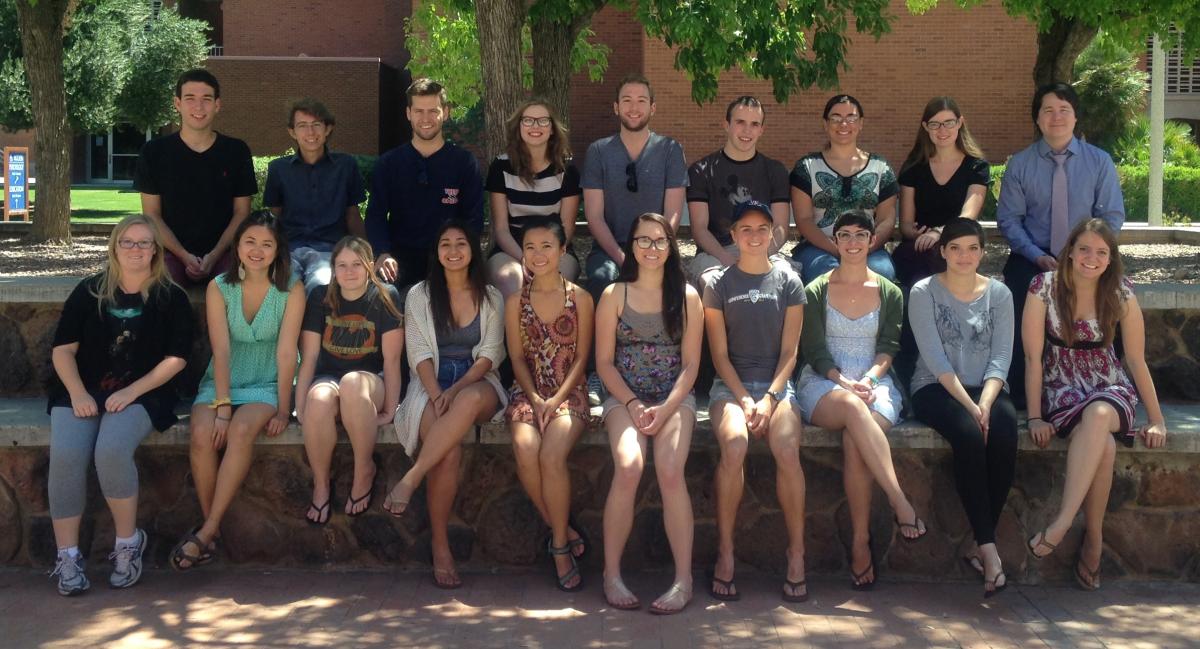
The Spring 2015 ENGL 486 Antebellum Edition Project Class
From left to right (back row): Jacob Winkelman, Jakub Safar, Maxwell Cunningham, Valerie Hoke, Reid Dempsey, Colin Pedron, Lucy Randazzo, Amy Nippert, Paul Hurh (front row): Kelsey Blackman, Stephanie Choi, Morgan Panknin, Isabel Garcia, Dieu My Nguyen, Shannon Higgins, Katherine Penney, Atha Zimmerman, Laura Penalver, Kelsey Whiteside (not pictured): Jessica Edwards
This course, taught in the English department for the Honors College, was an experiment. Given its exploratory and archival nature, the course had to stay flexible and only had a rough outline of a syllabus. In a pragmatic fashion, theoretical lenses and readings were introduced depending on the material recovered. Students found, in their explorations, texts that presented interesting, complex, questions. For instance, students found themselves wondering: why are so many of the stories set in the middle-east? what could explain the sometimes adulatory and sometimes hostile, attitudes towards Native Americans? why was music and art criticism so judgmental? why does so much of the nature writing seem proto-environmentalist? To frame these questions, students turned to several theories of history and culture. From biopolitics to the public sphere, from thing theory to German romanticism, class reading and discussion ranged widely, drawing from multiple sources the tools by which to understand their artifacts.
There were several unanticipated discoveries. One particularly early discovery was that, by reading the issues singly from cover to cover, the class would intuit "thematic flickers," themes or tropes that would seem to course through the issue from article to article. Though not necessarily deliberate, these traces lent a kind of atmospheric coherence from article to article, so that one of the challenges was, when possible and appropriate, to identify and present briefly that issue-specific context in the notes on the texts.
As an experiment in reading the archive, the students and the instructor came away with a largely unpredictable, possibly not repeatable, experiential understanding of the period. Adventuresome and enthusiastic, this class blazed just the beginning of a trail that they hope other students and other instructors may extend after them, whereever it may lead.